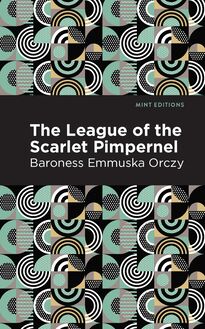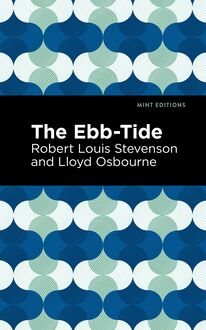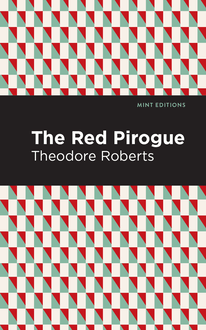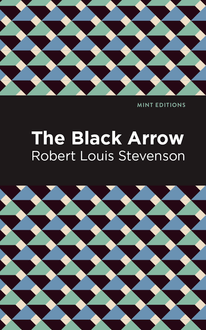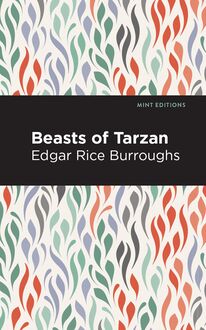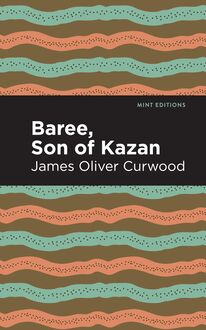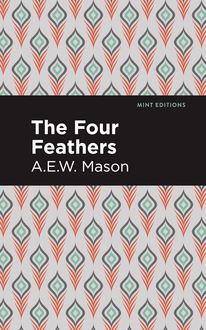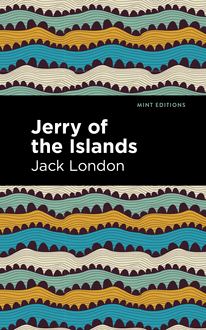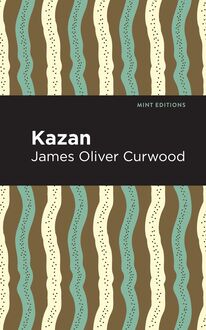-
 Univers
Univers
-
 Ebooks
Ebooks
-
 Livres audio
Livres audio
-
 Presse
Presse
-
 Podcasts
Podcasts
-
 BD
BD
-
 Documents
Documents
-
- Cours
- Révisions
- Ressources pédagogiques
- Sciences de l’éducation
- Manuels scolaires
- Langues
- Travaux de classe
- Annales de BEP
- Etudes supérieures
- Maternelle et primaire
- Fiches de lecture
- Orientation scolaire
- Méthodologie
- Corrigés de devoir
- Annales d’examens et concours
- Annales du bac
- Annales du brevet
- Rapports de stage
La lecture à portée de main

Vous pourrez modifier la taille du texte de cet ouvrage
Découvre YouScribe en t'inscrivant gratuitement
Je m'inscrisDécouvre YouScribe en t'inscrivant gratuitement
Je m'inscrisEn savoir plus
Vous pourrez modifier la taille du texte de cet ouvrage
En savoir plus

Description
Zoraida: A Romance (1894) is an adventure novel by Anglo-French writer William Le Queux. Published at the beginning of Le Queux’s career as a leading author of popular thrillers, Zoraida: A Romance is a story of adventure, omen, and the dangers of attraction. Using his own research and experience as a journalist and adventurer, Le Queux crafts an accessible, entertaining story for readers in search of a literary escape. Known for his works of fiction and nonfiction on the possibility of Germany invading Britain—a paranoia common in the early twentieth century—William Le Queux also wrote dozens of thrillers and adventure novels for a dedicated public audience. Although critical acclaim eluded him, popular success made him one of England’s bestselling writers. In Zoraida: A Romance, an English adventurer named Cecil Holcombe journeys on horseback across the Sahara Desert in search of a caravan belonging to Ali Ben Hafiz. Catching up with the men and camels bound for a faraway town, Holcombe gains their trust with his mastery of Arabic and respect of their cultural customs. After sharing a meal in the shade of a stony shelter, the caravan, bound for the Touat Oasis, continues on its way. When an ill omen occurs, Ali Ben Hafiz warns Holcombe against falling in love with a local woman, instead suggesting the Englishman return to his country to live a life in peace with a wife and family. Undeterred by danger, however, Holcombe ignores the man’s prophecy, and soon falls into the trap of the beautiful Zoraida. Zoraida: A Romance is a tale of mystery and danger set in the beautiful desert of southern Algeria, and remains fresh and exciting over a century after it was published. With a beautifully designed cover and professionally typeset manuscript, this edition of William Le Queux’s Zoraida: A Romance is a classic adventure novel reimagined for modern readers.
Sujets
Informations
| Publié par | Mint Editions |
| Date de parution | 21 mai 2021 |
| Nombre de lectures | 0 |
| EAN13 | 9781513285931 |
| Langue | English |
| Poids de l'ouvrage | 2 Mo |
Informations légales : prix de location à la page 0,0500€. Cette information est donnée uniquement à titre indicatif conformément à la législation en vigueur.
Extrait
Zoraida
A Romance
William Le Queux
Zoraida: A Romance was first published in 1897.
This edition published by Mint Editions 2021.
ISBN 9781513280912 | E-ISBN 9781513285931
Published by Mint Editions ®
minteditionbooks .com
Publishing Director: Jennifer Newens
Design & Production: Rachel Lopez Metzger
Project Manager: Micaela Clark
Typesetting: Westchester Publishing Services
C ONTENTS I . A LI B EN H AFIZ II . T HE O MEN OF THE C AMEL’S H OOF III . E NTRAPPED IV . A V EILED F ACE V . Z ORAIDA’S P LEDGE VI . T HE M AN WITH A S ECRET VII . A F ORGOTTEN T RAGEDY VIII . T HE F IGHT IN THE M ESKAM IX . U ZANNE, THE O UTCAST X . H UMOURS FROM THE D ESERT XI . T HE C ITY OF THE S UN XII . A N O ATH TO M ESSOUDIA XIII . N IGHT IN THE H AREM XIV . S EEKING THE U NKNOWN XV . A T THE S HRINE OF D ARKNESS XVI . T HE C RESCENT OF G LORIOUS W ONDERS XVII . S TRANGE C ONFIDENCES XVIII . A H IDDEN T RAGEDY XIX . D EAD F INGERS XX . A FTER THE F ATIHA XXI . A S TARTLING R EVELATION XXII . M AKITA’S E NEMIES XXIII . T HE T REASURE OF A SKIA XXIV . S LAVE OF THE S ULTAN XXV . T HE E UNUCH’S S CIMITAR XXVI . I N THE C OURTS OF L OVE XXVII . T HE F ALSE C ADI XXVIII . O N THE P INNACLE OF A L A RAF XXIX . L ABAKAN XXX . T HE H ALL OF THE G REAT D EATH XXXI . K AYLULAH XXXII . T HE G HUZZAT OF THE S ENOUSYA XXXIII . A P ENALTY OF B EAUTY XXXIV . U NDER THE G REEN B ANNER XXXV . B ETRAYED! XXXVI . T HE B OND OF B LOOD XXXVII . B Y THE D RUM OF N AR XXXVIII . H ADJ A BSALAM’S D ECREE XXXIX . M OHAMMED B EN I SHAK XL . T HE K EY TO THE M YSTERY XLI . T HROUGH R OSE M ISTS XLII . V AGARIES OF V ISION XLIII . T HE G REAT W HITE D IADEM XLIV . L E C OMMENCEMENT D E L A F IN XLV . T HE P RICE OF S ILENCE XLVI . S OME A MAZING F ACTS XLVII . C ONCLUSION
I
A LI B EN H AFIZ
T he adventure was strange, the mystery inexplicable.
A blazing noontide in the month of Moharram. Away across the barren desert to the distant horizon nothing met the aching eye but a dreary waste of burning red-brown sand under a cloudless sky shining like burnished copper. Not an object relieved the wearying monotony of the waterless region forsaken by nature, not a palm, not a rock, not a knoll, not a vestige of herbage; nothing but the boundless silent expanse of that wild and wonderful wilderness, the Great Sahara, across which the sand-laden wind swept ever and anon in short stifling gusts hot as the breath from an oven.
Far beyond the Atlas mountains, under the fiery rays of the African sun, I was riding with all speed in order to overtake a caravan which I had been informed by the cadi at Wargla had started for Noum-en-Nas, the small town in the Touat Oasis, two days before my arrival. The caravan, I learned, was composed of camels, therefore, mounted as I was on a fleet Arab stallion, and guiding myself by my pocket compass and the very inadequate map of the Depot de la Guerre, I expected to come upon them ere two suns had set.
Four long breathless days had now passed, yet I could detect no living thing.
In the far south of Algeria the intense dry heat of summer always affects Europeans, and although clad lightly in haick and burnouse, with my feet thrust into rough slippers, I was no exception. Alone in that trackless, arid desert, with my food and water nearly consumed and my brain aflame with fever, I was bound to admit my position decidedly unenviable. I was afflicted by a hundred miseries. Into my face the glaring noonday heat was reflected by the sand; I was hungry, my throat was parched, the racking pain of fatigue cramped my bones, and my horse, weary and jaded, stumbled now and then as he plodded slowly onward under the fierce, pitiless rays.
The two Chasseurs d’Afrique who had been sent with me for protection by my friend the General of Division, had foolishly partaken of melons soon after leaving Tuggurt, and had been stricken down with illness in consequence; therefore I had been compelled to set out upon my journey into the Areg alone.
Suddenly, about an hour after noon, my eager eyes were rewarded by a sight in the far distance of a cloud of dust. Spurring my horse, I galloped onward, and in half an hour the bells of the camels and the jingle of the horses’ trappings fell upon my ears. The dense whirling cloud of sand preceded the cavalcade, and whenever a gust of wind parted it, slow-plodding camels heavily laden with merchandise, glittering arms, and flowing scarlet and white burnouses could be seen. In this way the caravan presented itself as I pressed on towards its flank.
Within fifty paces of the vanguard I dug my heels into the horse’s sides and bounded across to the head of the convoy of a dozen Spahis. A solitary rider journeying across the desert is such an unusual spectacle that the ferocious-looking advance guard, fearing attack, shouted and lowered their rifles.
“ Phtaris ! Peace be upon thee!” I cried in Arabic, seeing myself received in such a hostile manner. “Cowards! Thou seemest afraid that a single Englishman will attack thy caravan!”
The guards, thus reproached, muttering that they were pressing through the turbulent country of the Beni Zougs, raised their weapons with a look of shame upon their dark-bearded faces, while their chief reined his horse to interrogate me.
“Whose is this caravan?” I asked, disregarding his string of rapidly-uttered inquiries.
“It belongeth to Ali Ben Hafiz, the merchant of Biskra,” he replied.
“And thou art on thy way to Noum-en-Nas?”
“True,” he answered, with a puzzled look. “But how dost thou know? What dost thou want with us?”
“Conduct me to thy master,” I said. “It is imperative that I should speak with him.”
As I uttered these words, an elderly grave-faced man, with a long white beard flowing over his spotless burnouse, rode up, and, judging him to be the merchant for whom I had been searching, I greeted him and gave him peace.
“ Aish ism arrajol di ?” (“What is the name of this man?”) he asked suspiciously of the chief of the convoy.
“My name,” I exclaimed, “is Cecil Holcombe, an Englishman who desireth to travel to the Touat Oasis. The Director of Fate turned the bridle of my horse towards thee and allowed me to hear the bells of thy camels from afar; the Guide of the Reins of Destiny moved my intention so that I came hither to meet thee. Behold! I bear unto thee a letter from our mutual friend, General Malezieux, Chief of Division.”
The name of that high official caused him to open his keen dark eyes wider, and, taking the letter from me, he quickly read it. In Arabic my friend the General greeted his brother Ali Ben Hafiz with strings of salutations and references to the Prophet, and implored him to take under his protection the adventurous Englishman.
When the old merchant had read it through twice, he slowly stroked his patriarchal beard. Then, looking up, he said in his own language—
“M’sieur Holcombe, be welcome to our shade. Allah, the One Merciful, is mighty: Allah, Lord of the Three Worlds, is wise. He ordaineth that although thou art an unbeliever, we should nevertheless be companions. It giveth me pleasure to succour thee—but before all take salt with us.”
The order was given to halt, a tent was quickly pitched, and we took salt and ate our kousskouss together, afterwards smoking our long haschish pipes until the noon was far spent. About five o’clock we resumed our journey again over the barren plain, the venerable-looking old Arab, in whom I found a most prayerful, pious, and entertaining host, riding by my side. The convoy of dark-faced Spahis, who, picturesque in their scarlet burnouses, had viewed me with such distrust, now regarded me as a distinguished guest, and were ready at every moment to do my bidding. To those who, like myself, have learned in the desert to regard life steadily, nothing temporal seems of moment when travelling by caravan, and our civilisation, of which we in Western Europe pride ourselves, seems but a frivolous thing of yesterday. Desert life to-day is the same as it was ten centuries ago; the same as it will ever be. Free and charming in its simplicity, yet with certain terrors ever-present, it offers many attractions to those in search of change and excitement. Thus, with the fiery sunset flooding the boundless wilderness, we wended our way due westward in the blood-red track of the departing day.
When the last rays were fading, another halt was made, the mats were spread, and Ali Ben Hafiz with his convoy and camel-drivers knelt, and, turning their faces towards Mecca, repeated their evening prayer, afterwards reciting with fervent devotion the Fatiha: “Praise be to Allah, Lord of all creatures; the most merciful, King of the day of Judgment, Thee do we worship, and of Thee do we beg assistance. Direct us in the Right Way, in the way of those to whom Thou hast been gracious; not of those against whom Thou art incensed, nor of those who go astray.”
Then in the falling gloom we again moved on. Slowly our camels plodded, the rhythmic movement of their heads causing their bells to jingle, and now and then an Arab would chant a weird Bedouin song, or goad on his animals, administering heavy blows emphasised by sundry forcible imprecations with frequent references to Eblis.
Old Ali—who was a native of Morocco and still acknowledged Mulai Hassan as his ruler, although he lived under the French flag—asked me to relate my history, and tell him of England and the Great White Queen; therefore, as we rode together, I entertained him with descriptions of my distant home, explaining to him our insular manners and customs, until the bright moon rose and the stars twinkled like diamonds in the cloudless vault of blue. At last, having entered a wild ravine, where some prickly acacias, dusty aloes, and patches of coarse hulfa grass grew, under the shadow of the rocks we encamped for the night. Our kousskouss was cooked and eaten, our horses fed and watered at the well, and while the Spahis were posted as se
Attention
En entrant sur cette page, vous certifiez :
- 1. avoir atteint l'âge légal de majorité de votre pays de résidence.
- 2. avoir pris connaissance du caractère érotique de ce document.
- 3. vous engager à ne pas diffuser le contenu de ce document.
- 4. consulter ce document à titre purement personnel en n'impliquant aucune société ou organisme d'État.
- 5. vous engager à mettre en oeuvre tous les moyens existants à ce jour pour empêcher n'importe quel mineur d'accéder à ce document.
- 6. déclarer n'être choqué(e) par aucun type de sexualité.
YouScribe ne pourra pas être tenu responsable en cas de non-respect des points précédemment énumérés. Bonne lecture !
-
 Univers
Univers
-
 Ebooks
Ebooks
-
 Livres audio
Livres audio
-
 Presse
Presse
-
 Podcasts
Podcasts
-
 BD
BD
-
 Documents
Documents
-
Jeunesse
-
Littérature
-
Ressources professionnelles
-
Santé et bien-être
-
Savoirs
-
Education
-
Loisirs et hobbies
-
Art, musique et cinéma
-
Actualité et débat de société
-
Jeunesse
-
Littérature
-
Ressources professionnelles
-
Santé et bien-être
-
Savoirs
-
Education
-
Loisirs et hobbies
-
Art, musique et cinéma
-
Actualité et débat de société
-
Actualités
-
Lifestyle
-
Presse jeunesse
-
Presse professionnelle
-
Pratique
-
Presse sportive
-
Presse internationale
-
Culture & Médias
-
Action et Aventures
-
Science-fiction et Fantasy
-
Société
-
Jeunesse
-
Littérature
-
Ressources professionnelles
-
Santé et bien-être
-
Savoirs
-
Education
-
Loisirs et hobbies
-
Art, musique et cinéma
-
Actualité et débat de société
- Cours
- Révisions
- Ressources pédagogiques
- Sciences de l’éducation
- Manuels scolaires
- Langues
- Travaux de classe
- Annales de BEP
- Etudes supérieures
- Maternelle et primaire
- Fiches de lecture
- Orientation scolaire
- Méthodologie
- Corrigés de devoir
- Annales d’examens et concours
- Annales du bac
- Annales du brevet
- Rapports de stage
